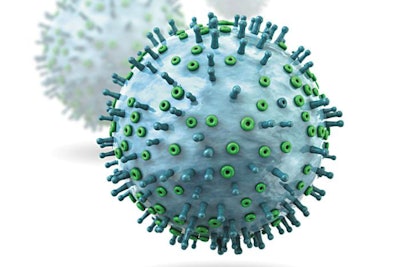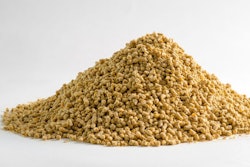
Scientists plan to try 2 new approaches to develop a more effective vaccine for PRRS
With vaccines currently top of mind in the scientific community, a collaborative project in the United Kingdom (U.K.) aims to apply new vaccine technologies to porcine reproductive and respiratory syndrome virus (PRRS) to determine if they might yield more effective vaccines for the persistent pig virus.
Although vaccines for the disease are already available, they aren’t always effective at preventing transmission of the virus, according to Simon Graham, who heads the PRRS immunology group at The Pirbright Institute. Pirbright estimates that PRRS still causes US$600 million in damages each year in the U.S., and costs EUR1.5 billion (US$1.77 billion) in Europe.
PRRS is particularly challenging to control because the virus mutates frequently to evade the pig’s immune system, Graham said. Simply injecting the pig with a weakened virus, as in a conventional vaccine, may not trigger an adequate immune response. To that end, The Pirbright Institute has teamed up with The Vaccine Group and ECO Animal Health to develop two new vaccines based on “next-generation” vaccine technologies.
The first collaboration, involving all three partners, will focus on triggering a “protective killer T cell response,” Graham said. T cells are responsible for killing foreign cells and viruses that enter the body; emerging research has even examined the potential of using T cells to develop a vaccine for cancer. To trigger a stronger T cell response to PRRS, researchers plan to use a weakened bovine herpesvirus to deliver viral proteins associated with PRRS in hope that the immune system will associate the strong immune response associated with the herpesvirus with proteins expressed by PRRS.
In a second collaboration between The Pirbright Institute and ECO Animal Health, researchers plan to modify the PRRS virus itself to trigger a more consistent immune response. The pig’s immune system is thought to react most strongly to components of the PRRS virus that mutate readily, allowing the virus to evolve and escape detection easily, Graham said. So the scientists hope to create a form of PRRS that will trigger immune responses based on parts of the virus that are consistent between strains and do not mutate over time, hoping to teach the immune system to recognize unchanging viral components.
If the collaborations yield a more effective PRRS vaccine, they could prove an important step toward eradicating the pig virus, Graham said. By testing novel approaches to vaccine development, the team also hopes to identify techniques that could be applied to other readily-mutating viruses, including the group of viruses that includes COVID-19.












